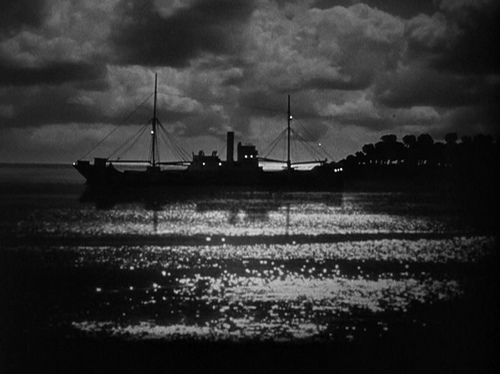From the Chicago Reader (April 1, 1988). — J.R.
The revisionist view of this 1940 adaptation by John Ford and Dudley Nichols of four one-act plays by Eugene O’Neill downgrades it in favor of the once-neglected Ford westerns — in large part because, unlike the westerns, it was widely praised when it first came out. But it’s about time to restore some balance and recognize this film as a remarkable achievement. This rambling, melancholy tale of merchant seamen and their lonely lives features arguably the best cinematography by Gregg Toland outside of Citizen Kane, and apart from the very special case of Lumet’s reading of Long Day’s Journey Into Night, O’Neill’s finest work, it’s certainly the best realization of O’Neill’s vision on film. It’s also as personal and as deeply felt as any of the more recently canonized Ford masterpieces, and does more with the expressionistic style he often adopted during this period than many of his better-known works. The ensemble acting is extraordinary; John Wayne turns in one of his few successful actorly performances as a Swede, and Thomas Mitchell, Barry Fitzgerald, Ian Hunter, Ward Bond, Mildred Natwick, John Qualen, and Joe Sawyer are equally impressive. The display of emotion here is more direct than is usual with Ford, but the dreamy atmospherics provide an ideal container for this raw feeling. An essential work. (JR)


